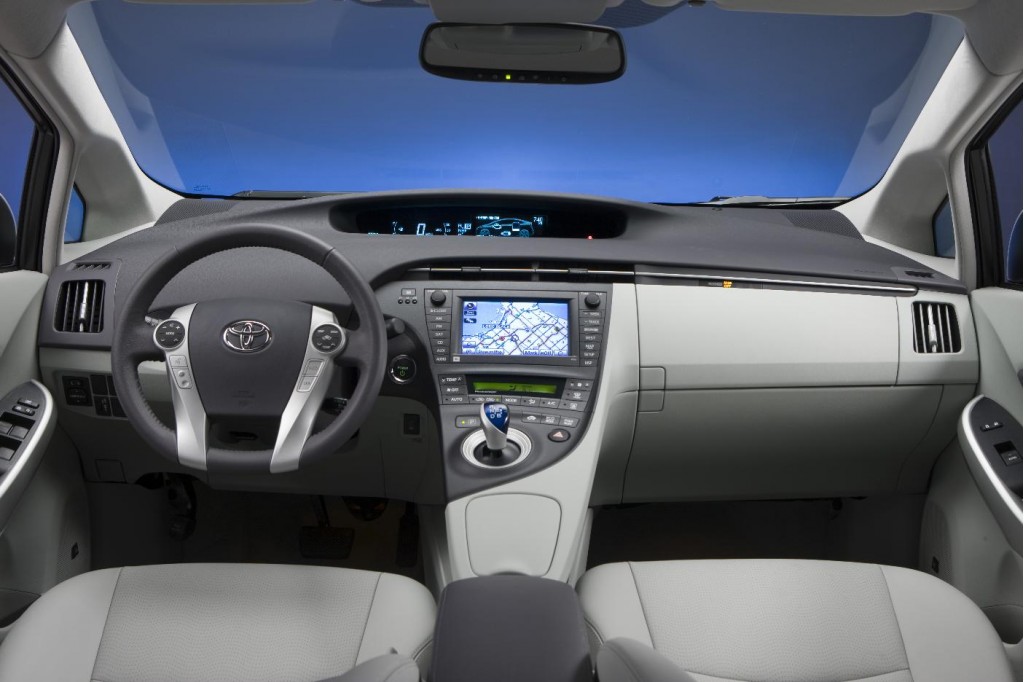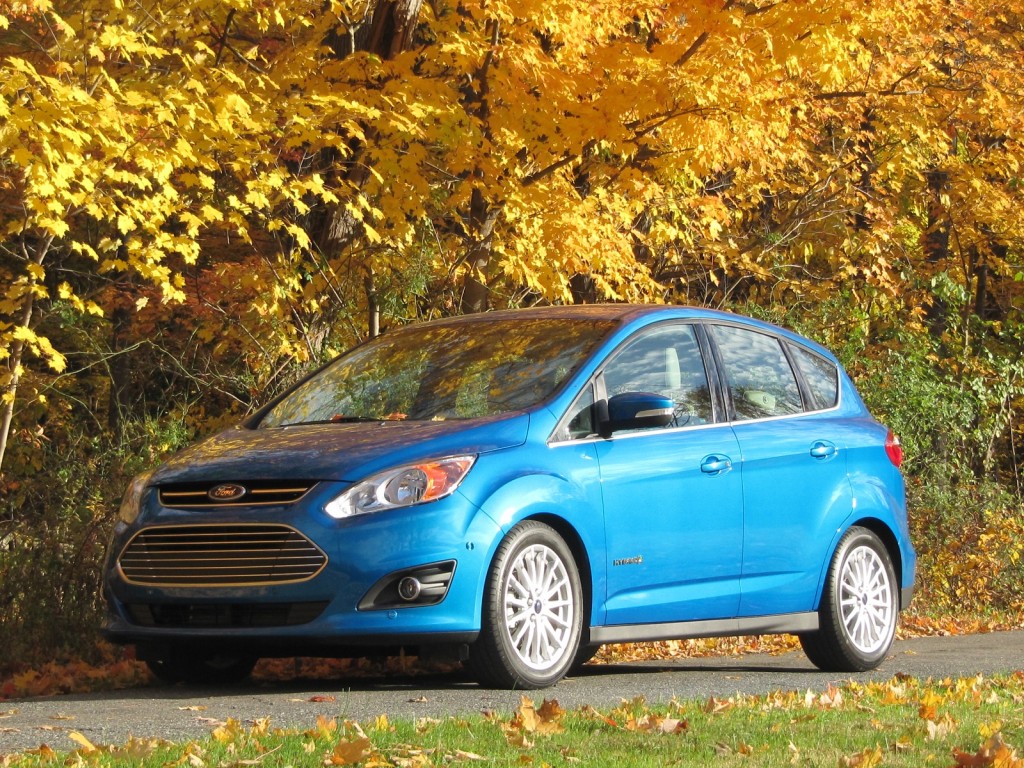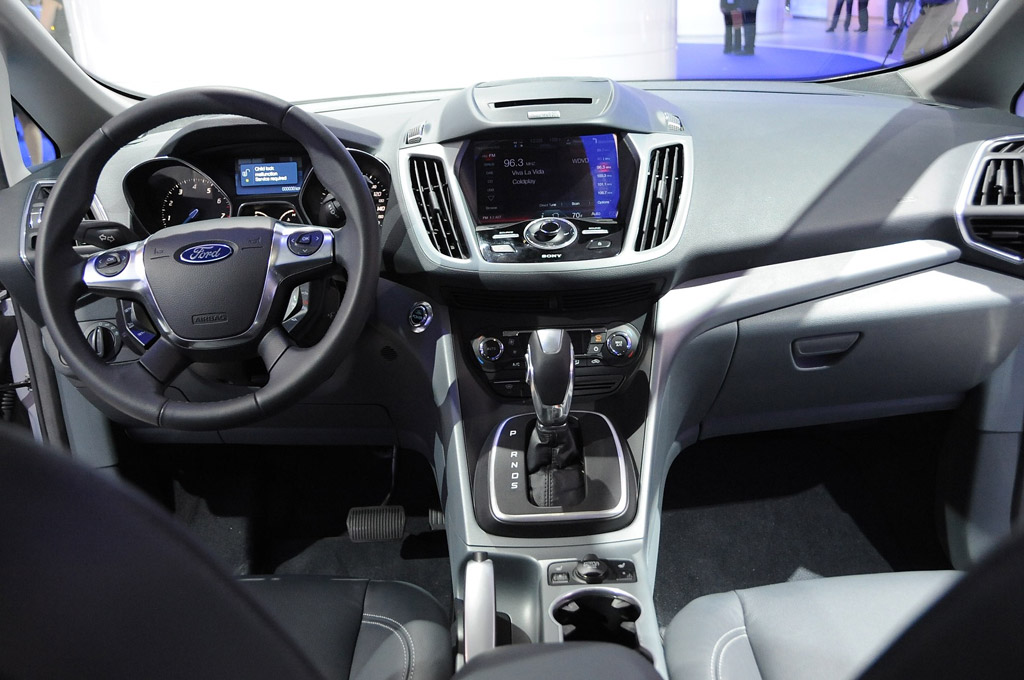For several years, Toyota had the hybrid market pretty much sewn up with its Prius.
Okay, so it never reached the heady economy highs of the original Honda Insight, but it was far more practical and electric running made it the hybrid of choice in city driving.
That's until the Ford C-Max Hybrid appeared, at any rate. If you're in the market for one of the cars, the chances are you're also in the market for the other--so we've pulled together the pros and cons of each to help you decide on your next hybrid family car.
Toyota Prius
We'll start with the incumbent challenger. Loved and loathed in equal measure, few cars split opinion like the Prius--but it has earned its gas-sipping reputation on merit, and remains one of the most economical non-plugins on the road.
The current Prius largely treads the same ground as the car that first hit the market wearing the now-famous badge.
That means an Atkinson cycle gasoline engine (once 1.5 liters, now 1.8 liters) paired with a hybrid system via an epicyclic gearbox. The benefit of this is a system that can choose between gasoline or electricity depending on road conditions--sometimes both, and if sitting in traffic, sometimes neither.

2010 Toyota Prius
Of course, these are all traits shared with the Ford. So what are the Prius's pros and cons?
Pros
- It does get slightly better on-paper fuel economy than the Ford, at 50 mpg to 47 mpg combined
- It's also better in the real world. On the EPA's fueleconomy.gov site, 2013 Prius drivers are averaging around 46 mpg (11 vehicles), and C-Max Hybrid drivers only 39 mpg, based on over 100 cars.
- The Prius has a slightly lower base price--$24,200 plays $25,200.
- Reputation: The Prius is a well-established fuel-sipper. The Ford has to earn that reputation.
Cons
- The Prius attracts an unusual degree of loathing from other drivers--few cars make such a statement about their driver, and some may be uncomfortable with this
- Styling both inside and out is starting to age
- No longer features cutting-edge tech, either beneath the surface or in the cabin--the Prius's interior is a little archaic these days
- Less than spectacular to drive
Head to page 2 to find out the pros and cons of running a Ford C-Max--and you can discover more on the Prius by reading our complete guide.
2013 Ford C-Max Hybrid, Catskill Mountains, NY, Oct 2012
Ford C-Max Hybrid
In standard form the Ford C-Max has been on sale in other countries for many years with gasoline and diesel options, but in the U.S. it's hybrid-only (including, like the Prius, a plug-in option) and proud of it.
With a 47 mpg combined fuel economy rating--as well as 47 mpg city and 47 mpg highway--it's also among the most frugal non-plugins on the market, and ties with the more traditional Ford Fusion Hybrid for economy.
Well, on paper at least--unfortunately, both Ford's high-profile hybrids have proven rather less efficient in the real world.
Still, they C-Max has plenty to recommend it--below are the pros and cons.
Pros
- Quicker and more fun to drive than the Prius
- Quieter and more refined inside, too--as well as having a less esoteric, better-quality interior
- Beats the Prius for interior volume, at 100 cu-ft to 94 for passengers, and 24 cu-ft luggage space to the Prius's 22 cu-ft
- It's fair to say that many buyers will be happier with the car simply because it's made by a domestic automaker
- Makes less of a "statement" than the Prius--and may appeal to drivers concerned with keeping a low profile
Cons
- Real-world economy is a long way off the official figures--most drivers are struggling to break into the 40s, compared to the official 47 mpg
- While the Prius is no real looker, nor is the C-Max. It's just a fairly indistinct minivan-style vehicle
- Marginally more expensive than the Prius--by around $1,000 at the entry level

2012 Ford C-Max live photos by Joe Nuxoll
The Ford C-Max could well be the perfect hybrid for a buyer used to Ford's existing Ecoboost models, or higher-performing vehicles from other marques. It'll appeal to those who don't want to sacrifice too much performance in other words, and who may find the Prius a little too slow.
It's also the newer car, and as such has all the benefits that entails--such as a nicer interior and a more refined drivetrain.
On the other hand, it still can't match the Prius on economy, and to that end the Prius is still the vehicle to go for if outright efficiency is a priority. You might say that the Ford is the better car, the Toyota the better hybrid.
_______________________________________________________
Follow GreenCarReports on Facebook, Twitter, Instagram and Google+












